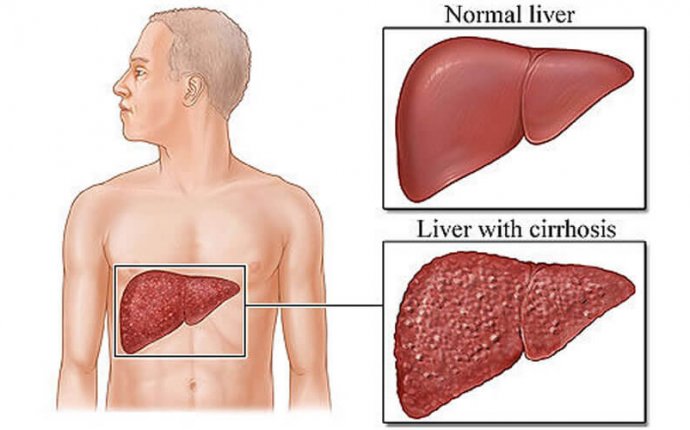
Liver and Ayurveda
 As a culture, we seem to be increasingly liver-conscious—ever more aware of the importance of a healthy liver. This attention is well deserved. Without question, the liver is one of our most vital organs—perhaps second only to the lungs and the heart. We can live with just one kidney or a single lung, and we can do without the spleen entirely. But we cannot survive without a functioning liver. Estimates as to the total number of separate functions performed by the liver are in the range of five hundred. The liver is endlessly filtering and detoxifying the blood and it plays a significant role in digestion and metabolism. But the liver also synthesizes protein, produces critically important enzymes and hormones, breaks down and recycles tired blood cells, and regulates glycogen storage. As our primary organ of detoxification, the liver has the important job of protecting the deeper tissues from impurities in the blood that might otherwise cause harm. However, over-exposure to toxins such as alcohol, prescription or recreational drugs, environmental pollutants, and the like, has the potential to adversely impact the liver itself.
As a culture, we seem to be increasingly liver-conscious—ever more aware of the importance of a healthy liver. This attention is well deserved. Without question, the liver is one of our most vital organs—perhaps second only to the lungs and the heart. We can live with just one kidney or a single lung, and we can do without the spleen entirely. But we cannot survive without a functioning liver. Estimates as to the total number of separate functions performed by the liver are in the range of five hundred. The liver is endlessly filtering and detoxifying the blood and it plays a significant role in digestion and metabolism. But the liver also synthesizes protein, produces critically important enzymes and hormones, breaks down and recycles tired blood cells, and regulates glycogen storage. As our primary organ of detoxification, the liver has the important job of protecting the deeper tissues from impurities in the blood that might otherwise cause harm. However, over-exposure to toxins such as alcohol, prescription or recreational drugs, environmental pollutants, and the like, has the potential to adversely impact the liver itself.
Thankfully, the liver possesses a remarkable ability to heal and rejuvenate itself. This is something that sets the liver apart from other organs and tissues. But if we want the liver to repair itself efficiently, we must offer it periodic rest. This resource is intended to provide some practical guidance on how to encourage the overall health and rejuvenation of the liver—both in our daily lives and in more focused periods of cleansing and detoxification. Whether you are currently struggling with low liver energy, or want to act preemptively, this article is for you. After all, loving your liver today has the potential to deeply impact your overall health, well-being, and longevity for years to come.
Whether you are currently struggling with low liver energy, or want to act preemptively, this article is for you. After all, loving your liver today has the potential to deeply impact your overall health, well-being, and longevity for years to come.
Key Liver Functions
We’ve already touched on some of the liver’s best known roles, but let’s take a moment to understand its broader range of functions—most of which occur quite elegantly in concert with other organs and systems outside of the liver:
Detoxification
As we know, the liver filters the blood and eliminates toxins from the bloodstream. In essence, when we eat, the digestive tract breaks our food down into miniscule, absorbable bits of energy, which are then allowed to enter the bloodstream—rasa dhatu (the plasma) to be precise. This nourishing “food juice” then travels to the liver to be further refined and filtered. The liver actually removes and eliminates unwanted toxins so that they do not enter into broader circulation. The liver is also responsible for metabolizing chemical toxins, prescription and recreational drugs, and alcohol.
 Bile Formation and Secretion
Bile Formation and Secretion
The Sanskrit word pitta means “bile.” Bile is an alkaline fluid that helps to emulsify fats for proper digestion. It is produced by the liver and temporarily stored in the gallbladder, which hangs at the base of the liver. As food is digested, the gallbladder empties stored bile into the small intestine. As a result, the health of the liver and gallbladder are closely intertwined.
Digestion and Metabolism
The liver plays a critical role in the digestion and metabolism of ingested nutrients. It is able to break down complex substances like carbohydrates, lipids, and proteins into biologically useful molecules like glucose, cholesterol, phospholipids, and lipoproteins. The liver also regulates and stores glycogen—our primary source of available biological energy.
Protein Metabolism and Synthesis
The liver is one of the primary places in the body where proteins are metabolized, synthesized, and later degraded. Most of our bodily tissues are made up of proteins, but they are particularly essential for nourishing the muscle tissue. In fact, Ayurveda connects low or weak liver energy to physical weakness in the muscle tissues.
Other Important Liver Functions
The liver is also involved in hormone creation and metabolism, the metabolism and storage of fat, the regulation of bodily pH levels, the generation of red blood cells, and the regulation of blood volume and blood pressure.
Ayurveda and the Liver
As its functions would indicate, the liver is intimately connected to a number of other organs, tissues, and systems throughout the body. Ayurveda provides us with an ancient, yet incredibly relevant perspective on these relationships, which can help us to better understand how to offer meaningful support to the liver.


















